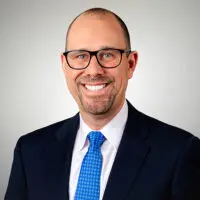Publication
DOJ Announces Updated Corporate and White-Collar Enforcement Policy
On May 12, 2025, Matthew R. Galeotti — Head of the U.S. Department of Justice (DOJ) Criminal Division — issued an updated enforcement policy detailing the Criminal Division’s priorities for prosecuting corporate and white-collar crimes (the “Corporate and White-Collar Enforcement Policy” or “Policy”). The Corporate and White-Collar Enforcement Policy, which comes on the heels of several other tide-shifting DOJ memoranda,1 further advances the Trump administration’s reshaping of the white-collar enforcement landscape.
The Corporate and White-Collar Enforcement Policy urges prosecutors to embrace three core tenets: (1) focus, (2) fairness, and (3) efficiency. In Galeotti’s view, prioritizing these tenets will enable the Criminal Division to “minimize the length and collateral impact,” of corporate investigations,2 “avoid overreach that punishes risk-taking and hinders innovation,”3 and more carefully consider whether “corporate misconduct warrants federal criminal prosecution.”4 The Corporate and White-Collar Enforcement Policy also expands the Criminal Division’s Corporate Enforcement and Voluntary Self-Disclosure Policy; prioritizes prosecuting individuals, including executives, officers, and employees; and narrows the availability of independent compliance monitors.
Galeotti announced the Corporate and White-Collar Enforcement Policy during his remarks at the Securities Industry and Financial Market Association’s (SIFMA) Anti-Money Laundering and Financial Crimes Conference in Washington, D.C.5 In his speech, Galeotti noted that, “recently, [the Criminal Division’s white-collar enforcement] efforts have come at too high a cost for businesses and American enterprise.” Galeotti called attention to the costs of “unchecked and long-running,” corporate investigations, which have deterred companies from cooperating with the DOJ. According to Galeotti, the Corporate and White-Collar Enforcement Policy marks the “turning [of] a new page on white-collar and corporate enforcement,” at the DOJ. We describe the key components of the Corporate and White-Collar Enforcement Policy below.
Focus: Prioritizing Certain Investigations and Prosecutions
The Corporate and White-Collar Enforcement Policy directs prosecutors to prioritize investigating and prosecuting white-collar crimes in ten high-priority areas:
- Waste, fraud, and abuse;
- Trade and customs fraud, including tariff evasion;
- Fraud perpetrated through variable interest entities (VIEs);6
- Fraud that victimizes U.S. investors, individuals, and markets (including Ponzi schemes, investment fraud, elder fraud, and servicemember fraud);
- Conduct that threatens the country’s national security (including enabling transactions by Cartels, transnational criminal organizations (TCOs), hostile nation-states, or Foreign Terrorist Organizations (FTOs);
- Material support by corporations to FTOs;
- Complex money laundering;
- Violations of the Controlled Substances Act and the Federal Food, Drug, and Cosmetic Act (FDCA);
- Bribery and associated money laundering that impact U.S. national interests, undermine U.S. national security, and enrich foreign corrupt officials; and
- Crimes involving digital assets that (1) victimize investors and consumers, (2) use digital assets in furtherance of other criminal conduct, or (3) involve willful violations that facilitate significant criminal activity.
While several long-standing enforcement priorities are included on this list (e.g., Medicaid/Medicare fraud and market manipulation), the list also highlights new priorities, including trade and customs fraud, tariff evasion, fraud committed by Chinese-affiliated entities, and material support to the international cartels that were recently designated as FTOs or other TCOs.
The Corporate and White-Collar Enforcement Policy also amends DOJ’s March 2024 Corporate Whistleblower Awards Pilot Program (Pilot Program)7 to reflect the Criminal Division’s focus on these ten high-priority areas. Under the revised Pilot Program, individuals may receive a monetary award if they provide DOJ with original, voluntary, truthful, and complete information regarding corporate violations in the following additional subject matter areas: (1) international cartels or TCOs; (2) federal immigration law; (3) material support of terrorism; (4) sanctions offenses; (5) trade, tariff, and customs fraud; and (6) procurement fraud.8 As with all subject areas, individuals’ information must result in forfeiture to be eligible for a monetary award.
Fairness: Prosecuting Corporations and Individuals
According to the Corporate and White-Collar Enforcement Policy, the Criminal Division’s priority is to prosecute individuals. The Policy notes that, “Prosecution of individuals, as well as civil and administrative remedies directed at corporations, are often appropriate to address low-level corporate misconduct and vindicate U.S. interests.” To that end, the Corporate and White-Collar Enforcement Policy instructs prosecutors to consider several additional factors when determining whether to charge corporations. Among those factors are a company’s willingness to cooperate with the government, whether the company reported its misconduct to the DOJ, and the company’s remediation efforts (if any).
To ensure fairness and individualized assessments, the Criminal Division’s Fraud Section and Money Laundering and Asset Recovery Section will revise the Criminal Division’s Corporate Enforcement and Voluntary Self-Disclosure Policy (CEP). The revised CEP will “clarify that additional benefits are available to companies that self-disclose and cooperate, including potential shorter terms.”9
Under Galeotti’s direction, the Criminal Division has also undertaken a review of the length of terms of all existing agreements with companies to determine if any such agreements should be terminated early. The Corporate and White-Collar Enforcement Policy notes that early termination may be warranted where a company self-reported the misconduct, has implemented a mature corporate compliance program, substantially reduced its risk profile, or has undergone extensive remediation efforts. The Corporate and White-Collar Enforcement Policy additionally orders prosecutors to impose terms of no more than three years, except in “exceedingly rare cases.”10
After acknowledging that federal investigations concerning corporate wrongdoing can be costly and intrusive for businesses, the Corporate and White-Collar Enforcement Policy outlines two procedures to maximize efficiency in all corporate investigations.
Under the first procedure, “prosecutors must move expeditiously to investigate cases and make charging decisions.”11 Specifically, prosecutors must take all reasonable steps to (1) curtail the length and collateral impact of corporate investigations, (2) ensure that bad actors are swiftly brought to justice, and (3) efficiently marshal resources.
The second procedure significantly narrows the use of independent compliance monitors in corporate investigations. Under the second procedure, prosecutors may use independent compliance monitors only when necessary — that is, when a company is unable to implement an effective compliance program “without such heavy-handed intervention.”12
According to the Corporate and White-Collar Enforcement Policy, the Criminal Division has already undertaken a review of all existing monitorships to make individualized determinations as to their necessity. The Corporate and White-Collar Enforcement Policy also previews the impending publication of a new monitor selection memorandum, which will (1) clarify the factors prosecutors must consider when determining whether to use an independent compliance monitor and (2) outline various methods for tailoring the scope of monitors’ reviews.
Key Takeaways
The Corporate and White-Collar Enforcement Policy sets forth the Criminal Division’s priorities and objectives, which include investigating waste, fraud and abuse, national security, sanctions, trade policy, and cartels, with a focus on individual accountability for executives, officers, and employees. Notably, the Policy also reiterates the Department’s long-held commitment to investigating and prosecuting foreign bribery in cases deemed to be in the national interest. Finally, the Policy reflects the Department’s intention to incentivize corporate voluntary disclosure and to continue and expand its Whistleblower Awards Pilot Program.
Footnotes
-
See, e.g., Memorandum from the Attorney General, General Policy Regarding Charging, Plea Negotiations, and Sentencing (Feb. 5, 2025); Memorandum from the Attorney General, Total Elimination of Cartels and Transnational Criminal Organizations (Feb. 5, 2025); Memorandum from the Deputy Attorney General, Ending Regulation by Prosecution (Apr. 7, 2025)
-
Memorandum from Matthew R. Galeotti, Focus, Fairness, and Efficiency in the Fight Against White-Collar Crime 7 (May 12, 2025) (“Corporate and White-Collar Enforcement Policy”).
-
Id. at 2.
-
Id. at 6.
-
See DOJ Office of Public Affairs: Head of the Criminal Division, Matthew R. Galeotti Delivers Remarks at SIFMA’s Anti-Money Laundering and Financial Crimes Conference (May 12, 2025).
-
The Corporate and White-Collar Enforcement policy describes VIEs as “typically Chinese-affiliated companies listed on U.S. exchanges that carry significant risks to the investing public.” Corporate and White-Collar Enforcement Policy at 3. According to the Policy, VIEs “provide few protections to investors, facilitate the flow of U.S. investor funds into strategic industries in China, and can be used to facilitate fraud in the U.S. markets.” Id.
-
See DOJ, Criminal Division Corporate Whistleblower Awards Pilot Program (May 12, 2025).
-
Existing subject matter areas under the Pilot Program include violations by financial institutions, foreign corruption and bribery, payment of bribes or kickbacks to public officials, federal healthcare offenses, and federally funded contracting or federal programs. Id. at 6-7.
-
Corporate and White-Collar Enforcement Policy at 6.
-
Id. at 7.
-
Id.
-
Id.
About Snell & Wilmer
Founded in 1938, Snell & Wilmer is a full-service business law firm with more than 500 attorneys practicing in 17 locations throughout the United States and in Mexico, including Phoenix and Tucson, Arizona; Los Angeles, Orange County, Palo Alto and San Diego, California; Denver, Colorado; Washington, D.C.; Boise, Idaho; Las Vegas and Reno-Tahoe, Nevada; Albuquerque, New Mexico; Portland, Oregon; Dallas, Texas; Salt Lake City, Utah; Seattle, Washington; and Los Cabos, Mexico. The firm represents clients ranging from large, publicly traded corporations to small businesses, individuals and entrepreneurs. For more information, visit swlaw.com.



